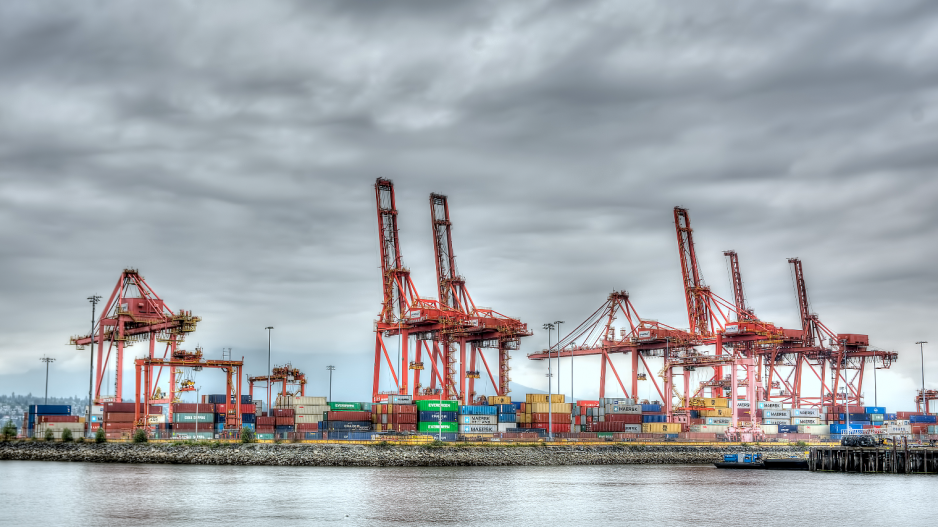Here’s another North American victim of the protracted China-U.S. trade dispute: optimistic shipping outlooks.
In its June container port briefing, U.K.-based shipping consultancy Drewry echoed a host of other analysts in pointing to a global trade slowdown.
Neil Davidson, Drewry’s senior ports and terminals analyst, said 2019’s first quarter “is all about the global slowdown [a] declining trend [that is] evident since Q3 2018 onwards.”
Port throughput growth, he said, had dropped to 3.7% in the year’s first quarter compared with 6.2% in 2018’s first quarter.
While the West Coast and the rest of North America still managed a health 5.4% port throughput growth in the quarter compared with the global average of 2.7%, shippers front-loading orders to beat looming tariff deadlines drove most of that percentage increase.
As of July 3, Drewry downgraded its 2019 container cargo outlook to 3% in global port throughput growth from its previous 3.9% prediction for the year.
In addition to concerns generated by the ongoing U.S.-China trade war and escalating tensions in other regions of the world, Drewry’s Container Forecaster pointed to what it described as a “series of existential fears” threatening to further reduce demand for an industry already grappling with a multibillion-dollar bill from stricter global emissions regulations. Those fears, Drewry said, include the regionalization of manufacturing supply chains and “growing momentum behind a low carbon environment-first campaign that has the potential to fundamentally change global consumption habits.”
Elsewhere in the global shipping game, the view was similarly downbeat.
For example, the Baltic and International Maritime Council (BIMCO) has predicted that weak demand for the next few quarters “is set to return [the container shipping industry] to negative margins.”
BIMCO noted that the number of containers being shipped around the world by sea grew by a mere 0.5% in 2019’s first quarter compared with the same period a year earlier.
That’s in stark contrast to global demand growth of 6.6% in 2017’s first quarter.
It also promises a lot of bottom-line pain in a container shipping industry that annually enjoyed double-digit growth between 1999 and 2017.
The International Chamber of Shipping’s (ICS) outlook is similarly bleak.
Its 2019 key issues report predicts that the 2019 economy will worsen and with it the demand for maritime transportation.
In addition to what the Economist Intelligence Unit estimates is a 20% to 30% possibility of the China-U.S. trade dispute having serious effects on the global economy, the ICS report points out that a host of other economic dangers loom on the near horizon.
They include levels of U.S. corporate debt hovering around 50% of GDP, which is similar to what they were immediately prior to the 2008 financial crisis.
The ICS report also notes that any messy U.K. departure from the European Union (EU) could seriously erode the wider EU economy, and it raised concern over the increasing uncertainty regarding China’s economic performance.
It pointed out that China’s GDP growth in 2018 was around 6.5%, the lowest it has been since 1990. The country’s economy is also burdened with significant levels of debt.
For B.C. and the rest of Canada, the fallout from the Huawei affair and China’s subsequent actions to derail Canadian canola exports to China, suspend meat imports from Canada and arrest Canadian business people in the country have underscored the need for Canada to pursue market diversity away from China.
Major global technology companies such as Apple (Nasdaq:AAPL) are also considering moving significant portions of their manufacturing operations out of China.
@timothyrenshaw




